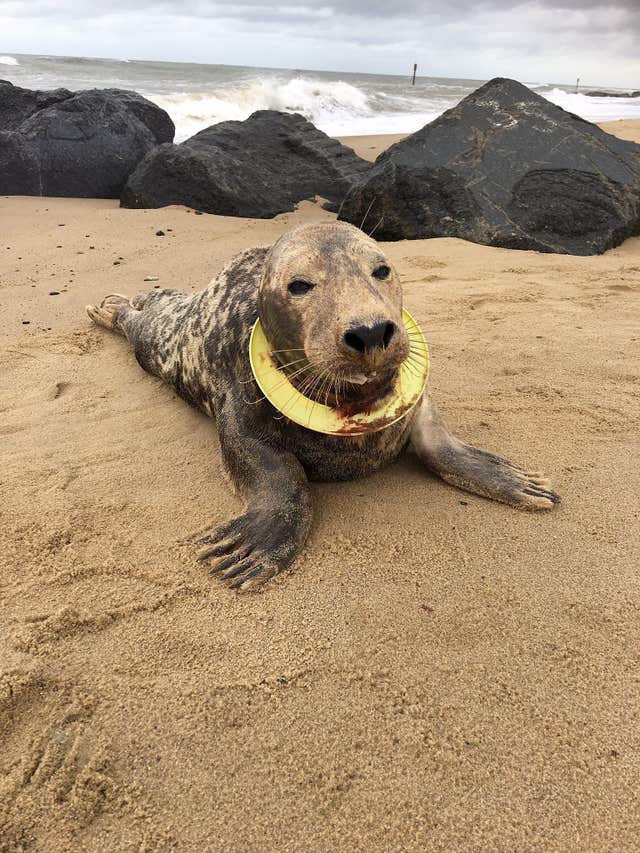Plastic found in 100% of marine mammals from British waters examined by experts
New ‘shocking’ findings shed more light on the extent of plastic pollution in the oceans.

A study of dolphins, seals and whales washed up on British shores found plastic in the digestive system of every one.
Scientists examined 50 animals from 10 different species that had died from a variety of causes.
All of them had “microplastic” particles, less than five millimetres across, in their stomachs and intestines.
The vast majority of the particles were synthetic fibres that may have been shed by clothes or fishing nets.
Others were fragments of originally larger pieces that could have come from food packaging or plastic bottles.
Lead researcher Sarah Nelms, from the University of Exeter, said: “It’s shocking – but not surprising – that every animal had ingested microplastics.
“The number of particles in each animal was relatively low, an average of 5.5 particles per animal, suggesting they eventually pass through the digestive system, or are regurgitated.
“We don’t yet know what effects the microplastics, or the chemicals on and in them, might have on marine mammals.”

Animals that died as a result of infectious disease had slightly higher numbers of particles than those killed by injury or other causes.
Professor Brendan Godley, from the University of Exeter’s Centre for Ecology and Conservation, said it was not possible to draw any firm conclusions on the significance of the link.
But he added: “We are at the very early stages of understanding this ubiquitous pollutant.
“Marine mammals are ideal sentinels of our impacts on the marine environment, as they are generally long-lived and many feed high up in the food chain.
“Our findings are not good news.”
The team, whose findings appear in the journal Scientific Reports, said bacteria, viruses and contaminants carried on the plastic were a cause for concern.
Species studied included the Atlantic white-sided dolphin, the bottlenose dolphin, the common dolphin, the grey seal, the harbour porpoise, the harbour seal, the pygmy sperm whale, Risso’s dolphin, the striped dolphin, and the white-beaked dolphin.
The research was supported by the environmental group Greenpeace.
Louise Edge, head of Greenpeace UK’s ocean plastics campaign, said: “It is ominous that every single marine mammal tested was found to have microplastics in their digestive system, and it shows the scale of plastic pollution in our seas.
“This is yet more evidence that the Government and big businesses need to focus their efforts on drastically reducing the use and waste of plastics, to stem the flow of plastic pollution into our rivers and oceans and into the mouths of marine wildlife.”
A different study published last year by scientists from the University of Manchester found high levels of microplastics in UK rivers and evidence that much of it is washed towards the sea during flooding.
The researchers tested river sediment at 40 sites throughout Greater Manchester and found microplastics in all of them, including some urban “hotspots” which contained hundreds of thousands of plastic particles per square metre.





